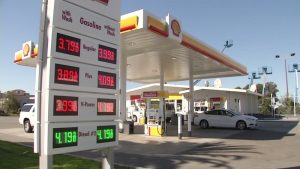Oil Hits 14-Year High After Continued OPEC Cuts
Nicole Beshara
Trending Writer
In recent weeks there has been an abundance of complaints of the skyrocketing gas prices. Some have pinned this on the recent shift in governmental power with the new United States president, Joe Biden. Others have blamed it on the economic trends that have accompanied the pandemic, but who is to “blame?”
The Organization of the Petroleum Exporting Companies (OPEC) is the organization responsible for the various effects on the economics of petroleum. Their mission includes the fair payment of people producing the product, a fair return for investors, and most relevant to this issue: ensuring the stabilization of oil markets. This would include the regulation of gas prices.
So, why are gas prices going up? In answering this question, one must not disregard how low gas prices have been during the pandemic. An article from April of 2020 writes from ABC News wrote:
“U.S. crude oil prices plunged below $0 per barrel for the first time in history, on Monday. It’s no secret COVID-19 is keeping people indoors. This means, at the moment, nobody needs oil, and there’s no place to store everything that’s been produced.”
In turn, gas prices plummeted to historically low levels. As the ABC News article continued, Robert Wood, a Strategic Management Professor at San Jose State University, argued that “It’s important that oil producers shut down production to a considerable degree.”

At the beginning of the pandemic, students were sent home, workers had to figure out how to do their jobs from home, and many were laid off. The nationwide lockdown had most people sitting in their homes for months, without an end in sight. This left their cars unused, and therefore oil was not needed, and its demand was much lower. Since the demand had plummeted, the only way to fix this issue was to decline the supply of gas, which is eventually what OPEC began to do.
How is this relevant to the recent rise in gas prices? It has been a year since the coronavirus shut the world down. People have learned how to go back to work and school safely, and slowly, the world is “reopening.” This reopening is causing the opposite effects of what took place a year ago. The demand for gas is increasing, and the supply is not sufficient; this, in turn, causes an increase in gas prices.
However, OPEC is purposely not increasing the supply due to precautionary measures since no one is sure how constant the increasing demand will be in the coming months.
Contact Nicole at nicole.beshara@student.shu.edu

